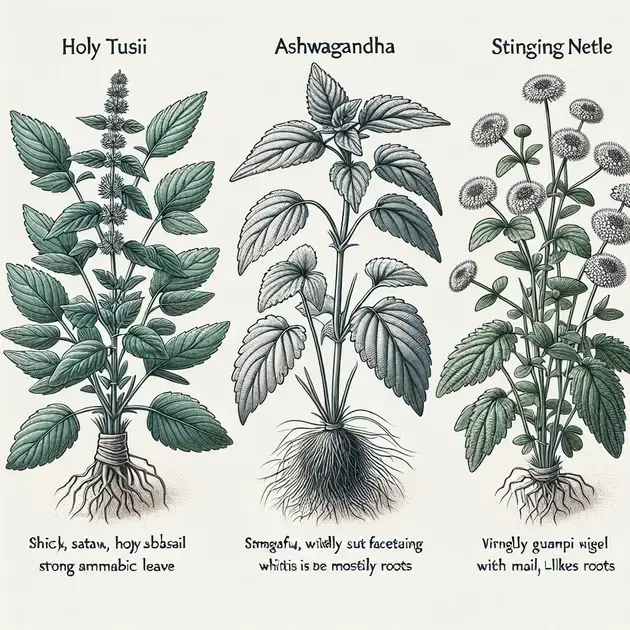Title: Is Stinging Nettle Healthy for You?
Introduction:
In the world of medicinal plants, several options stand out for their potential health benefits. While well-known plants like holy basil (Tulsi) and ashwagandha are commonly discussed, it is important not to overlook the potential benefits of stinging nettle (Urtica dioica). This article aims to explore the potential health advantages of stinging nettle, with a focus on its uses, benefits, and potential side effects.
Uses of Stinging Nettle:
Stinging nettle is a small plant with hair-like structures that can cause a stinging sensation upon contact with the skin. Despite this initial discomfort, the plant has been used for centuries in traditional medicine for its multitude of benefits. It can be consumed in various forms, such as teas, tinctures, or as an ingredient in various dishes. Stinging nettle can also be used topically in creams or ointments.
Health Benefits of Stinging Nettle:
- Nutritional Value: Stinging nettle is a rich source of essential nutrients, including vitamins A, C, and K, iron, calcium, magnesium, and protein. Its nutritional profile makes it a valuable addition to a healthy diet.
- Anti-inflammatory Properties: Stinging nettle has been found to possess strong anti-inflammatory properties, which may help alleviate symptoms associated with inflammatory conditions such as arthritis or allergies.
- Pain Relief: Traditional medicine has utilized stinging nettle for its potential analgesic properties. Some studies suggest that the plant may help reduce pain, though further research is needed in this area.
- Potential for Managing Enlarged Prostate: Stinging nettle has shown promise in managing symptoms of benign prostatic hyperplasia (BPH), a common condition in men. It might help alleviate symptoms such as frequent urination, incomplete emptying of the bladder, or weak urine flow.
- Potential for Lowering Blood Pressure and Blood Sugar: Some research suggests that stinging nettle may have a positive impact on blood pressure and blood sugar levels. However, more studies are required to confirm these effects definitively.
Side Effects and Precautions:
As with any medicinal plant, it is crucial to exercise caution and consider potential side effects. Stinging nettle may cause allergies or skin reactions in some individuals. It is recommended to perform a patch test before using stinging nettle topically and to consult with a healthcare professional before incorporating it into your routine, particularly if you are pregnant, breastfeeding, or taking any medications.
Conclusion:
Stinging nettle possesses a range of potential health benefits, including its nutritional value, anti-inflammatory properties, pain relief potential, and possible use in managing certain conditions such as BPH. However, it is essential to exercise caution, be aware of potential side effects, and consult with a healthcare professional before incorporating stinging nettle into your wellness routine.
Note: There are several medicinal plants that can provide health benefits. Tulsi, also known as holy basil, and ashwagandha are commonly recognized for their medicinal properties. However, it is also important to consider the inclusion of stinging nettle or Urtica dioica in this list. Despite its small size and hair-like structures that induce a stinging feeling upon skin contact, stinging nettle has numerous health benefits.
